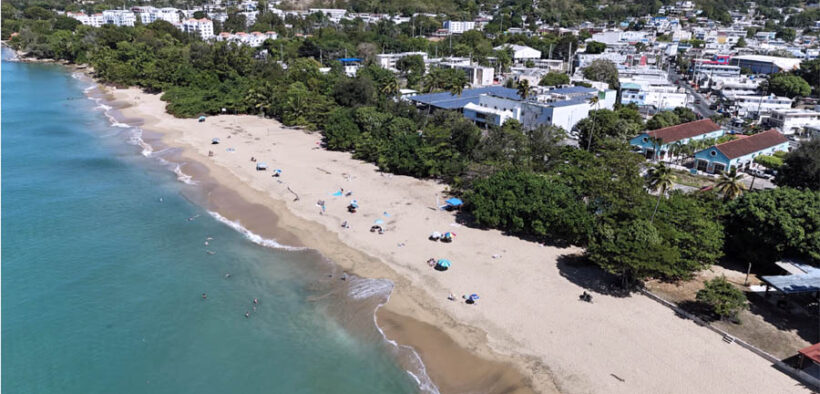Puerto Rico beaches see mixed results in water quality report

Surfrider Foundation report found some sites improved in 2024, while others remained on national bacteria hot spots list.
Puerto Rico’s beaches showed both signs of progress and persistent water quality issues in the Surfrider Foundation’s 2024 Clean Water Annual Report, which documented nearly 1,500 water samples taken across the island.
The testing was conducted by Surfrider’s Blue Water Task Force (BWTF) through three active labs: one in Rincón, another in the Isla Verde district in Carolina, and a newly established facility in Isabela, which expanded the group’s monitoring along the northwestern coast.
One of the most notable improvements was at Playa Lala in Rincón. Previously listed as a Priority Polluted Beach, the site saw fewer contamination events than in previous years.
“Contamination events at Playa Lala have been reduced by nearly 50%, and the beach is no longer on Surfrider’s Beach Bacteria Hot Spots list,” the report stated. The foundation credited persistent community advocacy and upgrades to local sewage pumping stations for the change.
Meanwhile, Playa Crashboat in Aguadilla was named one of the nation’s 10 Beach Bacteria Hot Spots, with 23% of samples in 2024 failing to meet health standards. The report linked the pollution to stormwater runoff, aging septic systems and mismanaged public facilities, including showers.
The new Isabela lab began monitoring five ocean sites and the effluent from the local wastewater treatment plant. Beaches such as Villa Pesquera and Pocita de la Princesa — popular with both residents and visitors — were among those tested. While the plant is scheduled for closure, Surfrider warned that pollution could be redirected elsewhere without improvements.
“Surfrider is advocating for increasing the capacity, improving treatment and fixing existing problems at the Isabela plant,” the report stated.
In Isla Verde, Surfrider continued weekly testing at five locations within the marine reserve through a partnership with nonprofit group Arrecifes Pro Ciudad. The site provides regular data for beaches in a densely populated and heavily visited urban area.
Beyond testing, the Blue Water Task Force has worked with schools, residents and other organizations to develop local alert systems that help detect sewage leaks and overflows in real time. These systems became especially important after Hurricane María, when government monitoring was suspended, the nonprofit stated.
“The chapter was able to leverage these community partnerships to resume water testing relatively quickly, while most of the island remained in the dark,” the report noted.
Surfrider said its long-term goal is to restore clean water access and support public health.
“We plan to expand our testing programs and establish more community-based reporting networks across Puerto Rico,” the foundation stated.








